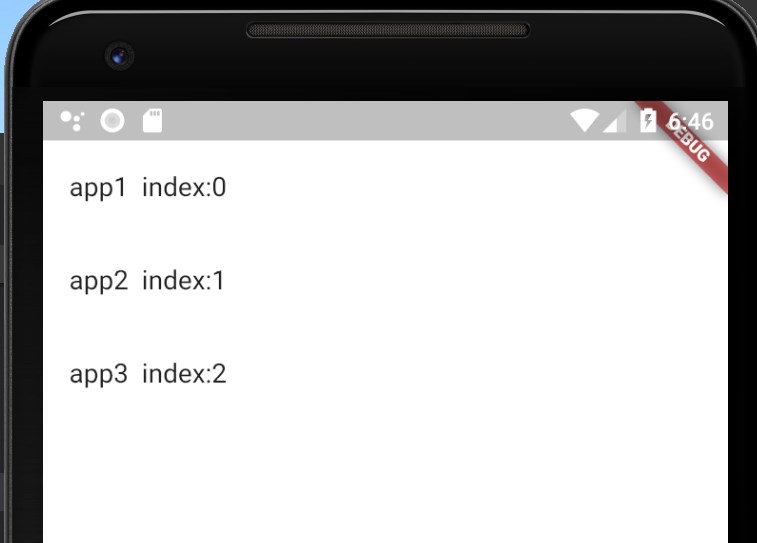I have asked a question named 'How to inject a Widget into a custom child Widget and use the child Widgets iteration index?' I already got an answer but there is a problem.
The answer said that I should:
"Instead of passing a Widget to your custom AppList you could pass a builder function that returns a Widget and takes the parameters as required, e.g. the index and whatever configuration is required. Something like the following:
Function definition:
typedef Widget MyListTileBuilder(String tileText);
then change the following:
final Widget child;
to
final MyListTileBuilder childBuilder;
of course you need to implement your builder method in Example Class:
Widget MyListTileBuilderImplementation (int index) {
return ListTile (
title: Text(installedApps[index]["app_name"]) //this is the text
),
}
when you build AppList inside example class you pass the method
AppList (
childBuilder: MyListTileBuilderImplementation
)
and finally inside AppList you call the builder, instead of adding child widget" :
itemBuilder: (context, index) {
return childBuilder(index); //This is where the ListTile will go.
},
So, I tried to edit my code. But for some reason it was not working. I think that I'm doing it wrong. Does anybody know how to solve this problem? (It would be very very helpful if you could edit my full code.)
Full Code:
import 'package:flutter/material.dart';
import 'package:flutter/services.dart';
import 'dart:async';
import 'dart:io';
import 'package:flutter_appavailability/flutter_appavailability.dart';
void main() {
SystemChrome.setEnabledSystemUIOverlays([]);
runApp(Example());
}
Future<void> getApp() async {
if (Platform.isAndroid) {
installedApps = await AppAvailability.getInstalledApps();
print(await AppAvailability.checkAvailability("com.android.chrome"));
print(await AppAvailability.isAppEnabled("com.android.chrome"));
}
else if (Platform.isIOS) {
installedApps = iOSApps;
print(await AppAvailability.checkAvailability("calshow://"));
}
}
List<Map<String, String>> installedApp;
List<Map<String, String>> installedApps;
List<Map<String, String>> iOSApps = [
{
"app_name": "Calendar",
"package_name": "calshow://"
},
{
"app_name": "Facebook",
"package_name": "fb://"
},
{
"app_name": "Whatsapp",
"package_name": "whatsapp://"
}
];
class Example extends StatefulWidget {
@override
ExampleState createState() => ExampleState();
}
class ExampleState extends State<Example> {
@override
Widget build(BuildContext context) {
return MaterialApp (
debugShowCheckedModeBanner: false,
home: Scaffold (
body: Container (
color: Colors.black,
child: AppList ()
)
),
);
}
}
class AppList extends StatefulWidget {
@override
AppListState createState() => AppListState();
AppList({Key key, this.child}) : super(key: key);
final Widget child;
}
class AppListState extends State<AppList> {
Widget child;
List<Map<String, String>> _installedApps;
@override
void initState() {
super.initState();
}
getApps() {
setState(() {
installedApps = _installedApps;
getApp();
});
}
@override
Widget build(BuildContext context) {
if (installedApps == null)
getApps();
return ListView.builder(
itemCount: installedApps == null ? 0 : installedApps.length,
itemBuilder: (context, index) {
return ListTile (
title: Text(installedApps[index]["app_name"])
);
},
);
}
}

